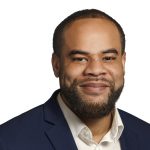Frank LoMonte Comments on Public Records and Public Officials’ First Amendment Rights
Frank LoMonte, University of Florida College of Journalism and Communications Brechner Center for Freedom of Information director, is quoted in “In the Dark: Florida Lawmakers Creating New Ways to Keep Public Records Private” published in the Tallahassee Democrat on Jan. 20.
The article addresses the cumulative effect of adding dozens of new exemptions to Florida’s open records law every year, and how fulfillment of records can grind to a halt if agencies need to review documents for more than 1,000 potentially exempt types of material.
“The problem is that open records laws have support that’s broad, but shallow,” said LoMonte. “Exemptions have support that’s narrow, but deep. It’s the ‘squeaky wheel’ principle. Once an exemption gets recognized, it’s like giving one of your kids a cookie: Everyone else wants one, too.”
He adds, “It’s a major reason why fulfillment of public records requests is so slow. We have cities and counties complaining that it’s burdensome to fulfill requests for documents, but they’ve helped create the burden by lobbying for more and more special interest carve-outs every year.”
“We need to have a serious, grown-up discussion about our obsession with privacy and what it’s costing us as a society,” LoMonte said.
In addition, LoMonte and Paola Fiku, UF Levin College of Law student and Brechner research assistant, are the authors of “Wilson’s Foreboding Forecast for Sunshine Laws: Partly Cloudy, with a Change of Unconstitutionality” published in the Notre Dame Journal of Law, Ethics and Public Policy, Volume 36, Online Supplement.


The article focuses on a pending U.S. Supreme Court decision that involves the First Amendment rights of public officials when they are speaking in their official roles. They argue that the Supreme Court should decide the case as narrowly as possible, because a broad decision in favor of public officials’ free-speech rights could backfire and cast doubt on the legitimacy of open-meeting laws.
They explain that elected officials have tried unsuccessfully to argue that open meeting laws are an unconstitutional infringement on their speech, and that if the Supreme Court is not careful in deciding the pending Wilson case, their decision could reinvigorate First Amendment challenges to open meeting laws.
Category: Brechner Center, College News
Tagged: Brechner Center for Freedom of Information Frank LoMonte Paola Fiku
Subscribe to our News Digest


